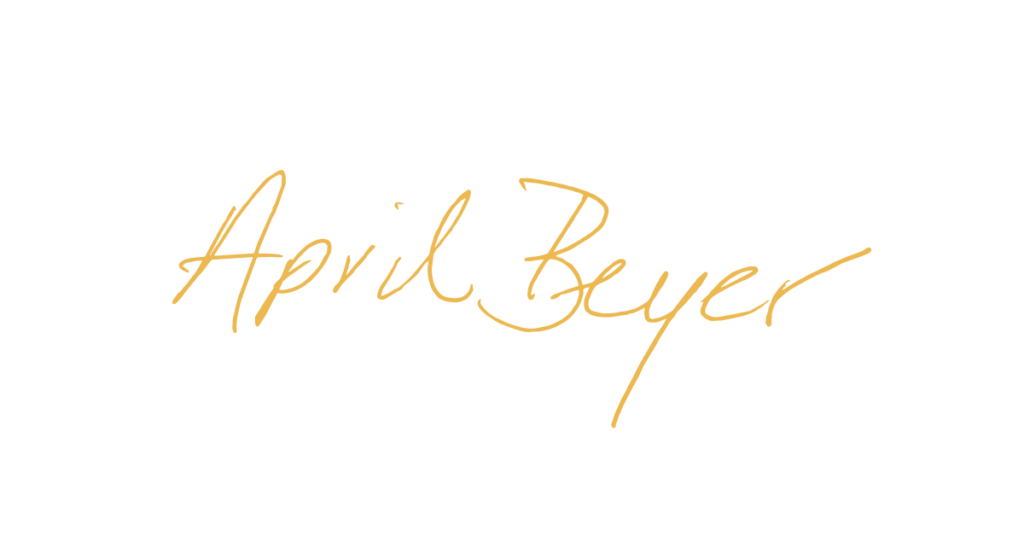I am exceptionally proud of my workplace. I have a team of dedicated, empathetic individuals who work together toward shared goals in an environment where everybody is their most authentic self. We speak freely and enjoy each other’s company. Regardless if we are sharing constructive criticism or a laugh, we always have each other’s best interests at heart.
Breaking down emotional barriers and building a workplace like this takes….well, work.
As a professional matchmaker with over two decades of experience, I understand how relationships are created and what it takes to sustain them, and I leveraged this knowledge to create a workplace where everyone thrives. My clients benefit from this culture, which is ironic since it arose out of what they taught me. It’s a circle of success.
But not every leader has access to the same level of insight into relationships as I do or recognizes how important this knowledge is. This is understandable, as you’re focused on steering the ship and remaining ahead of the competition in your industry. But my industry just so happens to be relationships and leadership, so I hold the secret that marries the two in perfect harmony. And that secret is emotional curiosity.
Today, I’m unlocking the secret of emotional curiosity so you can leverage it without missing a beat.
As a leader your plate is likely overflowing with fires that have to be put out, decisions that must be made, people who require your attention and goals that need to be met. I’m not here to add to that plate, but to help you balance it more effectively by offering what I’ve learned about building strong relationships at work through emotional curiosity as a leader, business owner, matchmaker and female motivational speaker. This knowledge will break down communication barriers in the workplace and cultivate a supportive, people-first environment that drives growth and creates sustainable success.
Are you ready to get curious?
Enhance Client Support and Teamwork by Breaking Down Communication Barriers in the Workplace
As a female motivational speaker, I talk a lot about the power of emotional curiosity. It’s an all-purpose tool everybody should have on hand. It has helped many of my clients overcome barriers to effective business communication. And as they developed emotional curiosity, they also learned how it can prevent damage caused by miscommunication and misunderstandings. In fact, just yesterday a friend and business owner called me with frustration he was experiencing from two team members not pulling their weight. After speaking with me, he sent a text the next morning: “I had an epiphany, April. I’m not curious enough as you so accurately pointed out during our conversation. I’m making a lot of assumptions, getting defensive, but I’m not asking nearly enough questions.”
Curiosity is as much a part of me as my eye color or my love of chocolate. Ever since I was a child, I always had questions…about everything. I’m so grateful that my parents encouraged this trait rather than telling me to be quiet. I’m sure they were exhausted most of the time! Learning how to hone my natural curiosity is part of why I am so successful as a matchmaker.
In fact, I unleashed its power just the other day.
A client scheduled a meeting with me and when he arrived he was visibly angry and mentioned that he wanted to back out of our agreement. I asked him to help me understand why he was questioning his future with our agency. We sat down, and for the next twenty minutes, I listened calmly, without interrupting or reacting defensively, and then I asked a few follow-up questions. I focused on learning about how he was feeling, not just thinking.
As he explained his feelings, his anger dissipated, until all that was left was the frustration and sadness that had been simmering under the surface. Feelings that arose out of anxiety about his daughter who was struggling at school, a long-awaited deal falling through and difficulties in co-parenting with his ex-wife. These issues had been building and all came to a head at once, overwhelming him and causing him to lash out in anger at the closest target.
By engaging emotional curiosity and asking deeper questions, we unearthed his true feelings. And although they ultimately had nothing to do with me, I helped break down the emotional barriers that were blocking him from exploring what was truly bothering him. I responded with compassion by praising him for being a caring father, encouraging him that another deal will come along and offering advice on how to improve communication with his ex-wife. Not only did his personal situation improve, so did our business relationship.
As a leader, you have interactions with people every day. These interactions will not always be positive and that might feel overwhelming especially for female leaders in a male-driven world. And because every person brings their own unique thoughts, feelings and perspectives to the conversation, a one-size-fits-all approach is impossible. This is where emotional curiosity comes in. It breaks down barriers to effective business communication, which aids in building strong relationships at work and motivating employees to be their best selves.
How Emotional Curiosity Helps Overcome Barriers to Effective Business Communication
I am fortunate that my background and experience enabled me to understand how to use emotional curiosity to overcome emotional barriers in communication. Emotional curiosity helped me defuse the situation and support my client in the way that worked best for him. As a leader, you too can leverage emotional curiosity to break down barriers to effective business communication.
People are the heart of your organization. When you communicate effectively with them, it creates an environment of trust, well-being and productivity. What leader wouldn’t love that outcome, right?
So, let’s explore how to use emotional curiosity to amplify your leadership impact.
1. Bring a New Perspective
Embracing emotional curiosity enhanced your perspective. This is especially helpful when faced with challenges at work. Prioritizing emotional curiosity can completely transform how we manage complex interactions and communication barriers in the workplace.
By taking time to understand the human emotions behind an employee’s reaction, you can lead with empathy and resolve the situation more effectively. In the situation with my client, if I hadn’t engaged in emotional curiosity, the interaction may have spiraled out of control and permanently damaged our business relationship. I chose to see what was under the anger rather than responding from what I witnessed.
2. Creating a More Inclusive and Supportive Work Environment
Earlier in my career, as I witnessed how effective emotional curiosity was in empowering my matchmaking clients to build meaningful relationships, a lightbulb went off. I knew I needed to explore how it could also benefit leaders. I began teaching my leadership clients how to hone their emotional curiosity to overcome emotional barriers in communication. I am thrilled to say that it has been incredibly effective.
Learning how to develop emotional curiosity is key to creating an inclusive and supportive work environment. When you genuinely get to know employees on a deeper level, you can connect with the essence of who each person is. This will organically foster meaningful relationships and improve empathy and effective communication throughout your organization.
3. Understand and Manage Emotions in High-Pressure Situations
In order to be a calm influence on employees as they navigate their emotions, you must first have a firm grasp on your own. Embracing emotional curiosity empowers you to gain a deeper understanding of your feelings and how to manage them.
Take a moment to reflect on the emotions that arise when you are faced with stress or pressure. Once you unearth those, you can learn how to leverage them to successfully handle challenges.
If you tend to seek space and solitude, you can learn when it’s time to walk away before emotions take over. If you typically become confrontational, you may consider exploring ways to remain grounded and present. Once you’ve unearthed the roots of your emotions, you can effectively acknowledge and communicate your needs. This will empower you to handle high-pressure situations with grace.
Achieving this level of self-awareness also sets an example for employees. Showing others how to treat, respect and support you will inspire your team to establish their own boundaries. It’s amazing how unleashing emotional curiosity can create a supportive, empathetic and inclusive culture where everyone thrives.
Building Strong Relationships at Work Begins with Emotional Curiosity
Developing emotional curiosity is key to breaking through communication barriers in the workplace. After all, relationships are the foundation of any organization’s success. When your team feels valued and heard, it increases engagement and motivation, which will ultimately reflect out to your clients.
Break through emotional barriers and embark on your own transformational journey of emotional curiosity with the following actionable tips. They’ve worked for hundreds of my clients, and I am certain they will work for you, too.
1. Ask, “How are you Feeling Today?”
In the situation with my angry client, I didn’t need to ask how he felt, but he needed to express it and have someone bring it to the surface. Although we did have to dig deeper to discover the root cause of his emotions, his actions, tone and words made it clear that he was upset. Many people are not so forthcoming with their emotions, so you may have to do a little digging to unearth them.
Starting conversations with your team by asking this simple but powerful question sets the tone for a compassionate and supportive environment. Asking how they are feeling demonstrates that you view employees as human beings with emotions and feelings just like you. In today’s fast-paced environment, taking a moment to truly connect with someone’s emotions is a refreshing change that builds meaningful relationships. Although you may receive a simple answer like ‘I’m doing fine”, with extra care, you will be able to recognize what is underneath the surface if you are listening to the tone in which they speak. Your response doesn’t necessarily come from what they say but rather how they say it. Tone holds the truth, always.
2. Observe Body Language
When learning how to overcome emotional barriers in communication, understanding body language is essential. While someone’s words may convey one thing, their actions often tell an entirely different story. When you engage in conversations with employees, pay close attention to their facial expressions, posture, gestures and eye contact. Their non-verbal cues will paint a true picture of their emotional state and can help you understand how they genuinely feel. Do they avoid your gaze? Are their eyes focusing on the floor? Do you notice their folding their arms? Are they fidgeting in their chair? Like tone, body language is a key to understanding people.
3. Practice Deep Listening
Listening is just as important as asking questions. Not only does it demonstrate to your team that you’re paying attention and genuinely interested in their perspective, it can also provide you with a wealth of information. Information that will help you improve effective communication and how you interact with each member of your team.
Part of practicing deep listening is asking the right follow-up questions based on what you have just heard or observed. In order to do this well, you must be present and in the moment. A list of pre-planned questions never works when you’re looking to know someone or build connections. Think of it like an improv show you might have seen or a sketch on SNL where it’s pretty clear everyone has gone off script. The reason why we laugh and enjoy this experience is because the actors are responding quickly to what is happening in real-time. It feels alive, natural and fresh. This will enable you to get to the heart of the matter and move forward in a positive and productive way.
4. Check Your Own Transparency
Emotional curiosity is a two-way street, and it’s vital that you share more about yourself. How can you expect your team to be transparent with you if you don’t do the same in return?
When you openly discuss your experiences, feelings and vulnerabilities, you become more human to your team. Does this make you less mysterious? Yes! But, effective leadership isn’t about mystery. People need to feel a sense of safety in order to succeed, take risks and get behind your mission. Knowing you does just that. If you worry this will negatively impact your position or power, please understand that this is a new paradigm we are looking to cultivate. Business is done in a completely new way these days. It’s the improved model and far more productive and satisfying than the old and outdated workplace that kept leaders removed from employees. We need to all be in the boat together. You can be the captain but you need to have a solid relationship with your crew. To know you is to respect you. This will create a safe space and inspire them to do the same without fear of judgment. Your willingness to be transparent demonstrates that creating an environment of mutual understanding and support is paramount.
Building Connections and Breaking Down Barriers with a Relationship Expert
As a leader, you hold the power to foster the type of workplace you desire. Just like I did, you can build on strategies that have worked so well in romantic relationships to foster meaningful connections and effectively break down communication barriers in the workplace. With my relationship background and leadership expertise as a female motivational speaker, I can offer valuable insights and real-life strategies to help your organization embrace this revolutionary approach.
After all, the heart of any organization is its people, and people will always be fascinating and complex. So, go ahead and let your emotional curiosity run wild! The profound journey that follows will be nothing short of amazing….and transformational for you and your team.






















